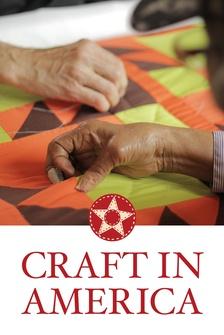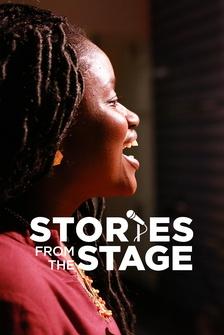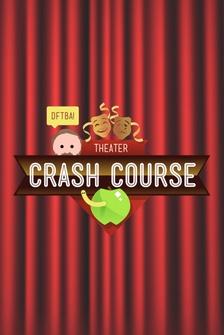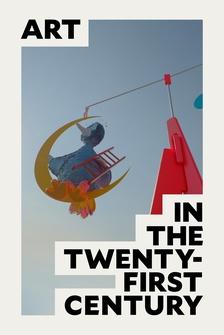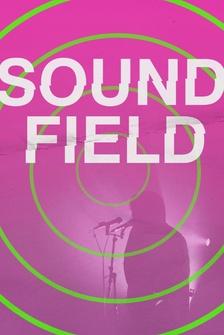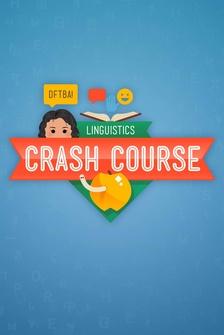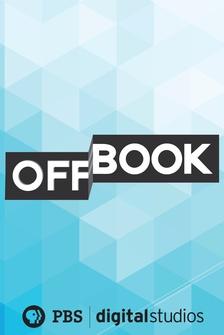♪ ♪ CHRISTIAN: Anytime one of these elders are around you, you better go run and find them and sit at their feet.
LIANY: With Christian, like, to think, like, who his mentor were, that can go back, all the way to when the music started.
BOTH: That hits!
JASON: And then she just turns to me and she says, "You've got it."
And then the whole band walks off the stage!
♪ ♪ ♪ ♪ CHRISTIAN: When I first discovered that I was in love with this music that we call jazz, or funk, or R&B, or gospel, whatever it is.
My number one goal was to go find all of these musicians that I look up to... JASON: Mm.
CHRISTIAN: And get information from them.
JASON: Right.
CHRISTIAN: You know, they're sages.
Whatever I'm trying to figure out as a musician, they got the information.
So, when Max Roach would come to town, I'd just be like, "Mr. Roach," you know, like, just sit there and listen.
JASON: Yeah.
CHRISTIAN: And, you know, he's gonna give you some wisdom.
Dr. Billy Taylor... JASON: Mm.
CHRISTIAN: Just sit, get some wisdom.
Learn something from them.
Roy Haynes, Ron Carter, Ray Brown, Freddy Hubbard, you know, McCoy Tyner, Bobby Hutcherson, Betty Carter.
JASON: Mm-hmm.
CHRISTIAN: All of these, these towering figures of wisdom and experience.
JASON: Yeah.
CHRISTIAN: I was like, why wouldn't I wanna learn from them?
JASON: Jaki Byard, Worcester, Massachusetts, you know, piano playing Frederick Douglass.
That's what I call him.
He used to have this beautiful hair, like... CHRISTIAN: That's right.
JASON: You know, um.
But I moved to New York to study with him.
I was like, I want that.
For four years I studied with him at Manhattan School of Music.
CHRISTIAN: So awesome, man.
JASON: And he kinda, he taught me the scope of the piano.
And some of the first things he said was like, he was like, "You know, but didn't your parents give you, you know, take you to music lessons?"
And I said, "Yeah."
He said, "Well, call your parents and tell them to send you all those music books that you left at home."
And I was like, "What?
Like, I thought I was coming up here for new stuff."
He was like, "No, just make sure you have that, too."
You know, like, he...
So, he kind of like, put it all out, like, everything is useful but you're gonna have to find a way to use it.
And I'm thankful for the way he... CHRISTIAN: Dig that.
JASON: He showed me that through the piano.
CHRISTIAN: You could try to cut yourself off from that in, in your quest to be an individual, to carve your own path.
But, you're going to wind up going in a circle because you're gonna have to wind up coming back to information that they gave you or info, information that you did not take from them that you know you now need.
JASON: Mm.
CHRISTIAN: You know.
So, you can't do it without addressing what the elders have already done.
You can't separate yourself from that or be, "Oh, I'm gonna do my own thing."
JASON: Mm-hmm.
CHRISTIAN: Your own thing probably has already been done at some point before.
You just gotta get in touch with the, with the history.
Learn from that, take it.
Anytime one of these elders are around you, you better go run and find them and sit at their feet.
(piano solo) (piano solo) (piano solo) ♪ ♪ ♪ ♪ ♪ ♪ ♪ ♪ ♪ ♪ ♪ ♪ ♪ ♪ ♪ ♪ ♪ ♪ ♪ ♪ ♪ ♪ ♪ ♪ ♪ ♪ JASON: Oh!
♪ ♪ ♪ ♪ ♪ ♪ (audience applause) ♪ ♪ ♪ ♪ ♪ ♪ ♪ ♪ ♪ ♪ ♪ ♪ ♪ ♪ ♪ ♪ ♪ ♪ ♪ ♪ (playing softly) ♪ ♪ (song ends) CHRISTIAN: That was right, man.
(audience applause) JASON: When I was about six, my parents put my brothers and I into Suzuki, um, piano, right?
CHRISTIAN: There you go.
JASON: My older brother played Suzuki violin, and my younger brother and I played piano.
CHRISTIAN: Yeah.
JASON: And we didn't really have a piano and then my parents got us a piano, right?
So, I would just practice and it was more like you practice 'cause your mama told you to.
CHRISTIAN: Right, right.
JASON: And my mom, rest her beautiful soul, Mary Lou, um, she would sit in my lessons every week and write notes and so much so that I was like, "Yo, mom, you gotta stop!"
(laughter).
JASON: One of the lessons and, uh.
(laughter).
JASON: And she was, she was, she was... CHRISTIAN: Wow.
JASON: She did not slap me that day.
(laughter).
JASON: Like, pow!
She didn't do that, she was just like... "More diminuendos."
CHRISTIAN: Wow!
JASON: "Four over three."
(laughter).
JASON: But anyway, I think...
So, that like got it into me enough.
CHRISTIAN: Yeah.
JASON: But I still didn't like the piano.
But it was clear that the piano was the one when I heard Thelonious Monk play, "'Round Midnight", and I was like, "Yo..." CHRISTIAN: "Now I get it."
JASON: "Who is that?"
CHRISTIAN: Right.
JASON: "Why is this piano that I also play, it doesn't sound like that."
CHRISTIAN: Right.
Right.
JASON: "And how can I get to that?"
CHRISTIAN: Yes.
JASON: Then I looked at it and I was like, "Yeah, now, all about him, it's perfection."
CHRISTIAN: There you go.
JASON: So, I was, you know, that was the time where I was kind of like struck.
The piano I can, I can go at it for life.
CHRISTIAN: That's the one.
Yeah, how old were you when that?
JASON: 13, yeah.
CHRISTIAN: Yeah, yeah.
Oh man, so killer, man.
Monk, Monk brings everybody in.
JASON: Love.
CHRISTIAN: You know, I, I think, uh, you know, seeing my dad play, uh, so often when I was a kid, uh, you know, it's like, "Oh, that's, that's dad up there playing bass.
All right, that's cool."
Um...
He was playing with Mango Santamaría.
(scoffs).
CHRISTIAN: And, uh... JASON: Wow.
CHRISTIAN: I loved the band, you know, but, yeah, I had no, you know, intention on ever becoming a musician.
Go figure, just one night, one night.
I was at the Atlantic City Jazz Festive 1980.
I remember it like it was yesterday.
JASON: Mm.
CHRISTIAN: Just this one particular gig, uh, Dizzy Gillespie was a guest soloist with the band that night.
JASON: Mm.
CHRISTIAN: Uh, Toots Thielemans and, uh, and I remember sitting in the audience and looking at my dad going... "I think I wanna play the bass."
(laughs).
So, I said, "Mom, can I have a bass for Christmas?"
And she says, "We'll, we'll figure it out."
So, I, I go to middle school and, uh, now I gotta play, uh, uh, an instrument in the orchestra.
And obviously you, you can't play the electric bass in the orchestra.
So, I picked the trombone 'cause, 'cause I was already a big James Brown fan.
So, I loved them, Fred Wesley trombone songs... JASON: Little Fred Wesley's, come on.
CHRISTIAN: I said, "I wanna play like Fred Wesley."
And, um, I was so bad... JASON: Mm.
CHRISTIAN: At the trombone and the brass instructor said, "Why don't you play upright?"
And I like... (groans).
JASON: Mm.
CHRISTIAN: "I don't want to play no upright."
You know, and he's like, "We really could use one.
Plus, you're really bad at the trombone."
He didn't say that but, I can read in between the lines.
JASON: Right.
CHRISTIAN: And, uh, I started playing the acoustic and, uh, I didn't really like it that much at first.
JASON: Mm.
CHRISTIAN: But it was kind of the same thing, uh.
My great uncle, who's also a bass player, he said, "Oh, you're playing upright now?
You need to get over here."
JASON: Oh.
CHRISTIAN: And he had a big stack of albums waiting for me.
Mingus... JASON: Oh.
CHRISTIAN: Ray Brown, Ron Carter, Oscar Pettiford.
I mean, he gave me like a crash course... JASON: Wow.
CHRISTIAN: In the history of jazz bass and that, that visit alone did for me what that Monk recording did for you.
(bass solo).
(bass solo).
(bass solo).
(bass solo).
♪ ♪ ♪ ♪ ♪ ♪ CHRISTIAN: You dig?
♪ ♪ ♪ ♪ ♪ ♪ ♪ ♪ ♪ ♪ CHRISTIAN: Ah!
♪ ♪ ♪ ♪ CHRISTIAN: Yeah.
(audience applause).
♪ ♪ ♪ ♪ ♪ ♪ ♪ ♪ ♪ ♪ ♪ ♪ (audience applause).
♪ ♪ ♪ ♪ ♪ ♪ ♪ ♪ (song ends) (audience applause).
CHRISTIAN: When I hear McCoy Tyner... JASON: Mm.
CHRISTIAN: I feel like I'm hearing gospel music.
JASON: Mm-hmm.
CHRISTIAN: You know?
When you hear Coltrane... JASON: Yeah.
CHRISTIAN: You're feeling gospel music, you know?
It's like I, I'm...
Okay, he's, he's using fourths.
You know, Elvin is playing, you know, sometimes behind the beat... Yeah, okay, whatever that's all wonderful to analyze and figure out.
But, at some point, it's about connecting with the higher spirit.
I think listening to R&B and soul kind of got me in tune with that.
JASON: Yeah, you know, the, the church also has been like such a place, a few times a week, for people to gather and also perform.
CHRISTIAN: Right.
JASON: You know anything about like Ring Shouts and the way, you know, Black folks used to kind of steal away into the woods to have these ceremonies for themselves?
CHRISTIAN: That's right.
JASON: I knew that music could get to that but I didn't know how to get to it, you know?
I may have seen musicians achieve it in a way, or hear it on records, and like, how do you get to it?
And I do remember a moment in college, playing with our friend, Eric Harland.
(clears throat).
Uh, a saxophonist from Philly, Lamont Caldwell... CHRISTIAN: Ah, my man!
JASON: Was in school with me and, and a few other friends from New York.
We were having a bad session.
But we started playing this Coltrane tune and then we just kind of like let it go, you know?
And then it just kept going and it kind of grew and then by the end of it, we were all in tears and I hadn't felt that before, you know?
And we didn't know why, uh, we were all crying, you know?
But there was something that just got unlocked in it and when you say like, you know, and "Train", he, he puts it in the music.
CHRISTIAN: Yeah.
JASON: He's like, "This is part of the sound."
CHRISTIAN: That's right.
JASON: "This is part of the melody, this is part of the rhythm."
CHRISTIAN: Yeah.
JASON: You know?
And, uh, and we didn't need it, as society needed that reminder, too.
That, that you should be reaching for it.
CHRISTIAN: That's right.
JASON: And I think by virtue of the music we play, which is so much about because it's been around a long time.
So, we have more to reflect on... CHRISTIAN: Yes.
JASON: Like lineage.
That we're always kind of like calling up a spirit when we're playing somebodies song.
We play a Thelonious Monk tune, Thelonious Monk tune is not simply just, "I'm gonna play the tune 'cause it's cool.
Nah, actually I'm trying to turn him up for a second."
CHRISTIAN: That's right.
That's right.
JASON: I'm trying to make him do a, "Ooh, nobody..." CHRISTIAN: There you go.
That's right.
That's right.
JASON: You know, and it's constantly there, you know, uh.
I played songs for my mom.
My mom had been gone a long time.
But, I'm always trying to get to where she hears and feels it.
CHRISTIAN: That's beautiful.
That's right.
That's right.
JASON: Because otherwise I, I can't simply play for the people in the room.
CHRISTIAN: Yeah.
JASON: That's not a wide enough audience for me.
CHRISTIAN: That's, that's, yes, right.
JASON: And not on land as, you know, this land that we're on... CHRISTIAN: Yeah.
Mm-hmm.
JASON: Right now and, you know, it has a lot of other ancestral spirit in it.
CHRISTIAN: Yeah.
Man, it was so beautiful, you said, uh, you had, uh, the, the audience in the room was not big enough.
That musical WIFI has to get... (laughter).
CHRISTIAN: Way passed the room.
JASON: Yes.
CHRISTIAN: You know?
JASON: Yeah.
Yeah.
Yeah.
You know, like I think when we begin we really, we try to make sure that our music can just get off the stage... (laughter).
JASON: And then that it can get to the people in the crowd, "Great.
Oh, man!"
CHRISTIAN: Yeah.
Right.
Right.
Right.
Right.
JASON: You know?
And then to the record where people can hear it, you know.
But then, there's also this just this other world that I think a lot of our favorite musicians were able to touch.
CHRISTIAN: Absolutely.
JASON: And every once in a while when we, when we get that just right, it, it feels like nothing else.
CHRISTIAN: It's something like, it's nothing else like it.
JASON: Yeah.
'Cause I think there are people in, in our history who really go through a lot of effort to find a, a meaningful and poetic way to tell you about your life.
They sacrificed themselves and tell you about you.
For a lot of us, Toni Morrison is one of these people.
CHRISTIAN: Sister Morrison, that's right.
JASON: Right?
So, during the... For years people have been crying at Toni Morrison novels, and laughing at Toni Morrison novels.
But, what she also does is she paints this music.
Often, she's talking about this music that happens on this stage.
And I wrote a piece for her based on a, a, a fragment or a section of, The Song of Solomon.
So, we're gonna play a song for Toni Morrison, it's called, Toni Morrison Said Black is a Rainbow.
(audience applause).
(piano solo).
(piano solo).
♪ ♪ ♪ ♪ ♪ ♪ ♪ ♪ ♪ ♪ (piano stops) JASON: "We were lost then and talking about dark.
See, you think dark is just one color, but it ain't.
It's five or six kinds of black.
Some silky, some woolly.
Some just empty.
Some like fingers.
And it don't stay still, it moves and changes from one kind of black to another.
Saying something is pitch black is like saying something is green.
What kind of green?
Green like my bottles?
Or green like a grasshopper?
Or green like lettuce, or cucumber, or green like the sky is just before it breaks loose to storm?
Well, night black is the same way.
May as well be a rainbow."
Toni Morrison, Song of Solomon.
(audience applause).
♪ ♪ ♪ ♪ ♪ ♪ JASON: Uh!
♪ ♪ JASON: Uh!
♪ ♪ (bass solo) ♪ ♪ ♪ ♪ (audience applause).
♪ ♪ ♪ ♪ ♪ ♪ (tempo slows) (song ends) (audience applause).
CHRISTIAN: Everybody thinks in jazz like, to be a mentor means you gotta have that grasshopper moment, you know.
"Come here youngster, let me show you the ropes," you know.
No, it's, it was never like that, you know.
You know, "What did they tell you?
What did they show you?"
Nothing.
JASON: No.
CHRISTIAN: They just called a song that you didn't know and be like, "I don't, um, Freddy, I don't know that song."
"Oh, you don't?
One, two..." You know.
(laughter).
Like, oh boy.
They just put you on the spot.
JASON: On the spot.
CHRISTIAN: You know?
JASON: Yeah.
Being put on the spot is actually part of the music, right?
CHRISTIAN: Yeah!
JASON: Like that is the thing that we, we work on response time, you know?
CHRISTIAN: That's right.
JASON: And when you were saying that you reminded me of like my first gig with Cassandra Wilson.
CHRISTIAN: Yeah.
JASON: I may have been 23 and so we're in the middle of the concert, I feel like I'm making it through it, right?
And then she just turns to me and she says, "You got it."
And then the whole band walks off the stage.
(laughs).
JASON: Right?
And I was like, "I, I don't know what song and I don't got nothing."
CHRISTIAN: Yeah, right like, like, "I got what?"
JASON: I got all kinds of nothing.
So, I start playing something and then I, you know, and then I look up like hoping that they're gonna walk back in.
Nobody's walking back onto the stage and I was just like, "Keep playing."
CHRISTIAN: Right.
JASON: I felt in that moment like, I was not ready for that moment.
But she was like, "You got it."
(laughs).
JASON: And I learned to do that to young musicians... CHRISTIAN: Yeah!
JASON: In bands now, "You got it."
CHRISTIAN: That's important.
JASON: There's a pianist who I met here in the Jazz Ahead Program, named Sequoia Snyder.
She's from DC, pianist, and she not only had like the right energy about what she was trying to play in the group, and trying to push the group.
But also, willing to take the chances, you know?
Not only on the bandstand but off.
CHRISTIAN: Have you, have you met Liany Mateo yet?
JASON: No, I have not.
CHRISTIAN: You will and you're gonna love her.
JASON: Nice, nice.
CHRISTIAN: Liany is killing it.
A young woman from Newark.
♪ ♪ LIANY: I'm constantly humbled by like what they had to go through, and able to like make a life for themselves, and to do this and, you know, for me to have the opportunity, and to like learn from them, and constantly be learning.
Is like one of the greatest honors I think like in life, you know?
It's like the whole purpose... SEQUOIA: Yeah.
LIANY: Of this, you know?
Like going back, the whole reason... SEQUOIA: Yeah.
LIANY: We love music is 'cause of this community and playing music gave me a community.
SEQUOIA: Oh, yeah.
LIANY: And it also like, we inherit like these ancestors, you know?
SEQUOIA: Definitely.
LIANY: Like, because like, Rodney was my teacher, um, Prof Whitaker was my teacher, Milton was my teacher because that was his teacher, you know?
SEQUOIA: Right.
Oof.
LIANY: Because you know what I mean?
SEQUOIA: Like that, that, that...
BOTH: That hits!
LIANY: Milton was born in 1910 and I was born, you know... SEQUOIA: Yeah.
LIANY: Much later, you know?
SEQUOIA: Yeah, yeah, true.
LIANY: And the same thing with Christian like, to think like, who his mentors were.
Like to think that that can go back all the way to when the music started, is like so humbling and is like so much bigger... SEQUOIA: Yeah.
LIANY: Then anything, you know?
SEQUOIA: No, I totally agree, and then to have like those people who, who were literally taught by Betty Carter and, you know, to have them affirm you and... LIANY: Woo.
SEQUOIA: To have people like Christian McBride, Jason Moran affirm, that is... LAINY: It's everything.
SEQUOIA: It's amazing.
Yeah, and humbling too.
LIANY: Yeah.
I remember the first time we met was, um, when our hero, Geri Allen, was holding like an, an all, um, women's jazz camp and I was a senior in high school, I think?
You were a junior, you know, because I'm your elder, um... (laughter).
LIANY: By a year, which we established today.
SEQUOIA: It was a Geri Allen camp.
At that time I didn't even know who Geri Allen was.
Of course, she's like a hero of mine now.
But, all I knew was that I was going to an all-girls jazz camp and I had never been to a jazz camp outside of like my hometown or anything.
So, I was, you know, I was nervous and like you were there, I don't remember exactly how we met.
But, you were super, super nice to me and really helped make me feel at home and, you know, of course, of course, we end up having a beautiful friendship, sisterhood, in college... LIANY: Yeah.
SEQUOIA: And everything, all to now so.
LIANY: Yeah.
Yeah, and look at that like, talk about lineage like.
SEQUOIA: Yeah.
Yeah, Geri Allen.
LIANY: Yeah, you know.
(piano solo).
(piano solo).
(piano solo).
♪ ♪ ♪ ♪ ♪ ♪ ♪ ♪ ♪ ♪ ♪ ♪ (bass solo) ♪ ♪ ♪ ♪ ♪ ♪ ♪ ♪ ♪ ♪ ♪ ♪ ♪ ♪ ♪ ♪ (song ends) CHRISTIAN: I'm curious, what was one of your first live music experiences?
JASON: The gig that I saw that, you know, I recall like pivotal was actually Run DMC and Public Enemy.
CHRISTIAN: Mm!
Okay.
JASON: That's what it was.
CHRISTIAN: My mother tells me that, you know, when I was a baby, she and my uncle had tickets to see Marvin Gaye... JASON: Mm.
CHRISTIAN: At the Spectrum in Philly.
She couldn't get a babysitter so she took me.
JASON: Come on now.
CHRISTIAN: And I'm so upset that I, I was too young to remember it.
JASON: But you do though.
CHRISTIAN: I guess.
JASON: Yeah, no.
It's clear that you remember what those songs were because I think like when you, when you... Like, music also washes over you.
CHRISTIAN: Mm.
JASON: Right?
CHRISTIAN: Yeah.
JASON: It doesn't simply just go in here and then lives in... CHRISTIAN: It gets in your body.
JASON: Right.
CHRISTIAN: Yeah.
Yeah.
JASON: And, you know, by knowing you all these years and how you look at Black music as like a continuum.
CHRISTIAN: Yeah.
JASON: Especially from your position at the bass.
Nah, you heard those songs.
(laughter).
JASON: You memorized those songs.
You, you heard that falsetto... ♪ Ahh ♪♪ CHRISTIAN: Right.
(laughter).
CHRISTIAN: Well, man, you know, uh, you talk about like Black music as a continuum.
JASON: Mm.
CHRISTIAN: You see Black music, art, poetry, dance, all of that in like one frame and, uh.
I, I've just always admired how you will, you take these amazing and beautiful, creative twists and turns.
I remember the first time, I guess the first time we actually played duo was on my radio show.
JASON: Oh, that's right.
Yeah, that's right.
CHRISTIAN: Yeah.
JASON: That's right.
CHRISTIAN: And I remember we were playing, uh, Evidence.
JASON: Yeah.
Yeah.
CHRISTIAN: And you kept looping the bridge.
JASON: All right.
Yeah, I like that.
CHRISTIAN: And I was like, yeah.
JASON: I'm an '80s kid.
Come on.
CHRISTIAN: This killing.
JASON: Any loop.
CHRISTIAN: You know.
(laughter).
JASON: Any loop will do.
Any loop will do.
But, you know, like, but that's like funk, you know?
CHRISTIAN: Yes.
JASON: Like, like, so when I'm thinking about like... CHRISTIAN: Big time.
JASON: And, and then that's like so much ancestral music is that, you know?
CHRISTIAN: Yeah.
JASON: Like tribal music is the loop, you know.
Like, there's something about and, and the freedom is in the improvisation over the loop, you know?
CHRISTIAN: Hey, we.
Hey.
JASON: And so... CHRISTIAN: We talk about my hero, James Brown.
JASON: I feel, yes.
I feel like we, we also have that in common, also... CHRISTIAN: Big time.
JASON: Because of our generation too.
CHRISTIAN: Big time.
JASON: And we aren't afraid to touch that as a central part of our legacy as well.
CHRISTIAN: From James Reese Europe, to Monk and Mingus, to P.E.
JASON: Yeah, yeah, yeah.
CHRISTIAN: You know, all of that.
JASON: Yeah.
(piano solo).
(piano solo).
♪ ♪ ♪ ♪ ♪ ♪ ♪ ♪ ♪ ♪ ♪ ♪ ♪ ♪ CHRISTIAN: Yeah!
♪ ♪ ♪ ♪ (audience applause).
(bass solo).
JASON: Yeah!
(bass solo).
(bass solo).
(bass solo).
(bass solo).
JASON: Ugh!
(bass solo) (bass solo) (audience applause).
♪ ♪ ♪ ♪ ♪ ♪ ♪ ♪ ♪ ♪ ♪ ♪ ♪ ♪ (song ends) (audience applause).
JASON: I remember meeting you the first time.
I, we were both going to Wynt Marsalis' apartment... CHRISTIAN: Right.
Right.
JASON: When he lived right by Lincoln Center.
CHRISTIAN: Right.
JASON: And I got in the elevator and here's this brother.
He's got these headphones around his neck, he's like ultra-cool, you know?
It was you and, and, and he was like, "You going up to Wynton's?"
You know, and I was like, "Yeah," and he was like, "All right, cool man.
What you do?"
You know what I mean?
He's like, "Where you from?"
Right?
This is how I met Christian McBride and Wynton's kind of like, you know, one of our, our big brothers, basically.
CHRISTIAN: That's right.
JASON: And, and he was always kind of having people in his space.
You know what I mean?
Especially young musicians, like he wanted to check in on you.
CHRISTIAN: Right.
JASON: Make sure you're cool.
CHRISTIAN: Right.
JASON: But I remember meeting you and Christian always felt like, how is he close to my age and has recorded, you know, 700 or 3,000 records, you know?
Like, you know, you're on some total, uh, I don't know what they call that, you know.
But, I don't know what your gene makeup is, your, your family line gave you somehow the ability to, to put, to make an output that is prolific!
CHRISTIAN: Yeah.
JASON: Not only for your age but also the quality, you know.
There are a lot of people playing on a lot of records, they don't sound good...
They don't sound good on a lot of records.
(laughter).
CHRISTIAN: Oh, man.
JASON: You are out here like saving bands, one-quarter note at a time, you know.
CHRISTIAN: Well, you know, what I've learned from you is, uh, you know, it's like a, a, a big picture, you know?
Because it's easy, I think for me as a bass player, as a, as a musician, you know, you kinda get, you know, "I got a project that I'm working on and I need to do a certain thing."
JASON: Mm-hmm.
CHRISTIAN: But with you, I get like, "No, it's not a certain thing.
It's all of this."
JASON: Mm.
CHRISTIAN: You know what I mean?
JASON: We're gonna play something brief for you.
But we're, we're gonna try to plant so much of the heavy in it.
And this is our version of, What a Wonderful World, uh.
(audience applause).
(piano solo).
(piano solo).
♪ ♪ ♪ ♪ ♪ ♪ ♪ ♪ ♪ ♪ ♪ ♪ ♪ ♪ ♪ ♪ ♪ ♪ ♪ ♪ ♪ ♪ ♪ ♪ ♪ ♪ (song ends) (audience applause).
JASON: Christian McBride.
Thank you, brother.
CHRISTIAN: Jason Moran.
The great Jason Moran.
Thank you.
(audience applause).
JASON: I was in the very last, uh, class that Betty Carter had of Jazz Ahead.
CHRISTIAN: Wow.
JASON: Here at the Kennedy Center.
So, I come down here and I'm kinda on some weird ideas about music, you know?
Meaning, I like to experiment.
CHRISTIAN: She probably, she loved that.
JASON: So, I brought a tune in that was kind of wild.
A lot of the other musicians were a little like, "Yo, pieces of trash, and when Betty hears it, she's gonna destroy this brother."
It was actually in this room, actually.
It was in this very room.
CHRISTIAN: Wow.
JASON: She said, "See y'all.
See this is what you should be trying to do.
See they're actually trying something right now."
Because she hated cliché.
And then she said to me, you know, "This ain't that good.
But, I'm gonna make it, I'm gonna help you get it better, right?"
And then she did.


